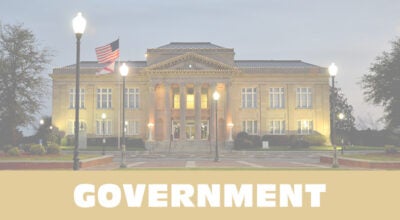Haiti, not oil spill, is main storm season worry
Published 1:53 am Thursday, May 27, 2010
FORT LAUDERDALE, Fla. (AP) — A hurricane might help break up the oil spill staining the Gulf of Mexico, but the oil won’t change significantly how tropical storms develop or the damage they inflict, the director of the National Hurricane Center said Wednesday.
A hurricane making landfall west of the spill could drive the oil inland with surging seawater to the north and northeast. Forecasters don’t know what kind of environmental hazards to expect, though, because sizable oil spills are rare in the main hurricane breeding grounds. Storm surge usually carries other toxic materials from flooded cisterns, septic systems and sewage treatment plants, hurricane center director Bill Read said.
“It’s going to be part of the ecological catastrophe that you get anyway with a hurricane,” Read said. The six-month Atlantic hurricane season begins June 1.
For now, the spill mostly lies off Louisiana, where marshes and wildlife have been coated with oil. At least 7 million gallons of crude have gushed into the Gulf since the Deepwater Horizon rig exploded April 20, killing 11 workers.
BP said Wednesday that it had started a “top kill” maneuver to plug the leaking well by force-feeding it heavy drilling mud and cement. It’s never before been tried a mile beneath the sea, and company officials said it could be a couple of days before they know whether it is working.
Emergency managers urged coastal residents to prepare to get out of a storm’s way, regardless of whether it crosses oil-contaminated waters.
“Whether or not we have an oil spill, if you have a major hurricane coming, you have to evacuate,” Federal Emergency Management Agency Administrator Craig Fugate said. “There’s not much we’re going to be able to do about what is already out there.”
Read, Fugate and Florida’s emergency management chief David Halstead spoke with reporters before addressing the annual Florida Governor’s Hurricane Conference in Fort Lauderdale.
The spill isn’t covering enough of the warm waters that feed tropical storms to alter their development, and it won’t affect the hurricane season forecast, which the National Oceanic and Atmospheric Administration will announce Thursday, Read said.
“The prevailing thought is the hurricane will have much more effect on the oil, rather than vice versa,” Read said.
Read said his biggest concern for the upcoming Atlantic storm season is the potential for a new catastrophe in Haiti, where hundreds of thousands of Haitians who have been living under flimsy tents since the Jan. 12 earthquake. Heavy rains are enough to trigger flooding and landslides in the mountainous Caribbean country, but no evacuation plans exist for the makeshift camps prone to floods, torrents of mud and potential spread of disease.
“If I was stuck in a tent and high winds came, I would get as low to the ground as I could to avoid flying debris,” Read said. “That doesn’t sound very comforting, but that’s better than standing up and getting buffeted around.”
Florida helped repatriate 26,000 people evacuated from Haiti after the earthquake, Halstead said.
Within 10 days after the quake, hundreds of injured survivors ended up in hospitals in Florida, the nearest U.S. state. The state’s complaints about its struggles to keep up with the influx of evacuees prompted the U.S. military to halt medical airlifts from Haiti for several days during an epic humanitarian crisis and a bitter exchange between Florida and federal officials over where to send patients.
Halstead said Wednesday the state has worked through those problems coordinating with agencies that do not typically respond to disasters and is prepared for more evacuations from Haiti.
“Haiti is no different to us than Georgia or Alabama. They’re our neighbors,” he said.
Addressing the conference later Wednesday, Fugate told emergency managers that FEMA was looking at boosting its social media presence, such as with websites that can be read on mobile phones.
He also said the agency was trying to improve response plans they’ve adapted from the military that don’t always work for the general population. Most of the cots FEMA purchased for emergency shelters, for example, were designed for young, healthy troops and not overweight, elderly or handicapped residents, he said.





